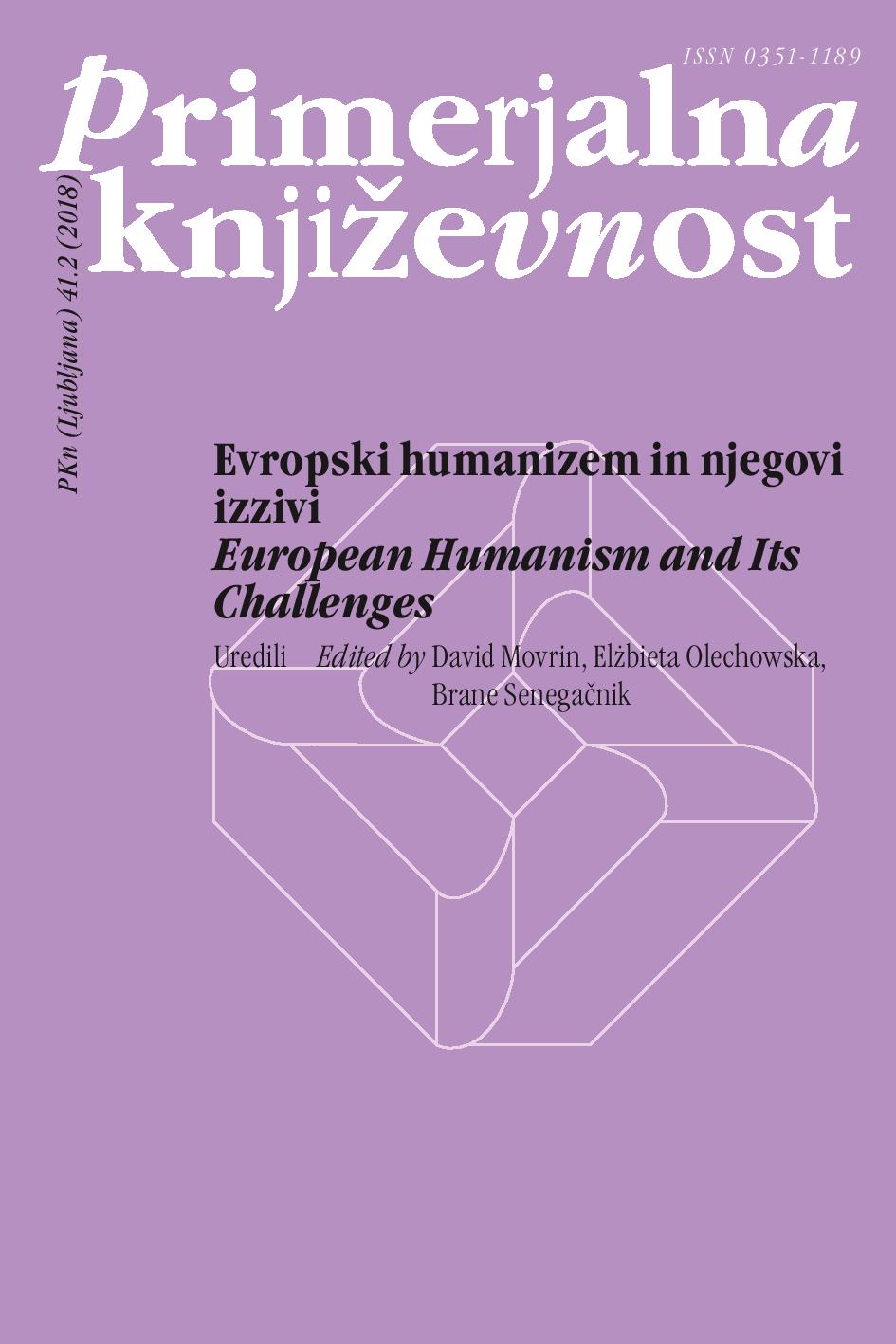Dante’s “Transhumanism”
Keywords:
Italian literature, Renaissance, Dante Alighieri, mysticism, mystical experience, deification, metaphysics of willAbstract
The article deals with the interpretation of famous Dante’s neologism in the last canticle of Divine Comedy: trasumanar. The question that could be raised regarding this expression is whether it designates mystical experience or no. The analysis of the key passages of the last cantos of Paradiso reveals Dante’s “transhumanization” as pointing at the beginning of the long process of deification. Yet the last verse of Comedy, from which the whole work should be understood, do not present the climax of the drama of human salvation in the frames of noetic vision of God (visio Dei), but in the frames of so-called metaphysics of will, namely as fusion of wills, union of human and God’s will. We are dealing here with the concept of the mystical experience that is deeply processual and, at least in statu viae, cannot be accomplished. Such an interpretation paves the way to a special understanding of literary self, namely as dynamic “deep Self” that is opened for transformative acts of the Other.References
Auerbach, Erich. Mimesis: prikazana resničnost v zahodni literaturi. Prevedel Vid Snoj. Ljubljana: Literarno-umetniško društvo Literatura, 1998.
Bernard iz Clairvauxa. »De diligendo Deo«. Patrologia Latina 182 (1854): stolp. 971–1000.
Boitani, Piero. The Tragic and the Sublime in Medieval Literature. Cambridge: Cambridge University Press, 1989.
Botterill, Steven. »Quae non Licet Homini Loqui: The Ineffability of Mystical Experience in Paradiso I and the Epistle to Can Grande«. Modern Language Review 83.2 (1988): 332–341.
– – –. Dante and the Mystical Tradition: Bernard of Clairvaux in the Commedia. Cambridge: Cambridge University Press, 1994.
Bloom, Harold. »Introduction«. Dante Alighieri. Ur. Harold Bloom. New York: Bloom’s Literary Criticism, 2011. 1–20.
Curtius, Ernst Robert. Evropska literatura in latinski srednji vek. Prevedel Tomo Virk. Ljubljana: Literarno-umetniško društvo Literatura, 2002.
Dante Alighieri. La divina commedia. Inferno. Izd. Natalino Sapegno. Firence: La Nuova Italia Editrice, 1989.
– – –. La divina commedia. Paradiso. Izd. Natalino Sapegno. Firence: La Nuova Italia Editrice, 1970.
– – –. Božanska komedija. Prevedel Andrej Capuder. Ljubljana: Mladinska knjiga, 1966.
– – –. Božanska komedija. Pekel. Prevedel Andrej Capuder. Celje: Celjska Mohorjeva, 2005.
– – –. Božanska komedija. Raj. Prevedel Andrej Capuder. Celje: Celjska Mohorjeva, 2005.
De Sanctis, Francesco. Storia della letteratura italiana. Firence: Salani, 1965.
Deen Schildgen, Brenda. »Dante’s Neologisms in the Paradiso and the Latin Rhetorical Tradition«. Dante Studies, with the Annual Report of the Dante Society 107 (1989): 101–119.
Druker, Jonathan. Primo Levi and Humanism after Auschwitz: Posthumanist Reflections. New York: Palgrave Macmillan, 2009.
Eliot, T. S. Selected Essays. London: Faber and Faber Limited, 1948.
Freccero, John. »Dante’s Firm Foot and the Journey without a Guide«. Dante: The Poetics of Conversion. Ur. Rachel Jacoff. Cambridge, Mass.: Harvard University Press, 1986. 29–54.
Malato, Enrico. Dante. Rim: Salerno, 2002.
– – –. »Il difetto della volontà che non s’ammorza: Piccarda e Costanza. Lettura del canto II del Paradiso«. Studi su Dante: Lecturae Dantis, chiose e altre note dantesche. Cittadella: Bertoncello artigrafiche, 2005. 258–298.
McGinn, Bernard. The Presence of God: A History of Western Christian Mysticism 5: The Varieties of Vernacular Mysticism (1350–1550). New York: Crossroad, 2012.
Mills Chiarenza, Marguerite. »The Imageless Vision and Dante’s Paradiso«. Dante Studies, with the Annual Report of the Dante Society 90 (1972): 77–91.
Moevs, Christian. The Metaphysics of Dante’s Comedy. Oxford: Oxford University Press, 2005.
Mousley, Andrew. »Introduction«. Towards a New Literary Humanism. Ur. Andrew Mousley. Basingstoke: Palgrave Macmillan, 2011. 23–27.
Publius Ovidius Naso. Metamorphosen. Lateinisch-deutsch. Izd. in prev. Niklas Holzberg. Göttingen: De Gruyter, 2017.
Trione, Fortunato. »Paura del senso e timore di Dio: misticismo nella Divina Commedia«. Dante Studies, with the Annual Report of the Dante Society 129 (2011): 187–216.
Underhill, Evelyn. Mysticism. A Study in the Nature and Development of Man’s Spiritual Consciousness. London: Methuen & Co., 1911.


